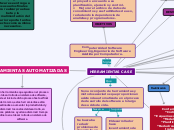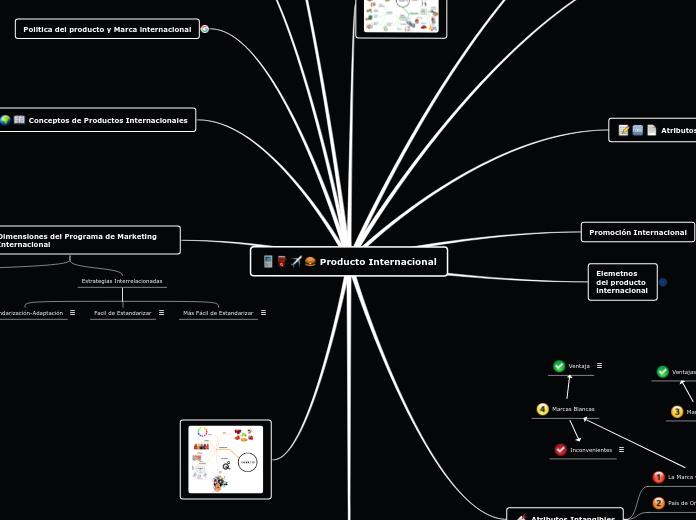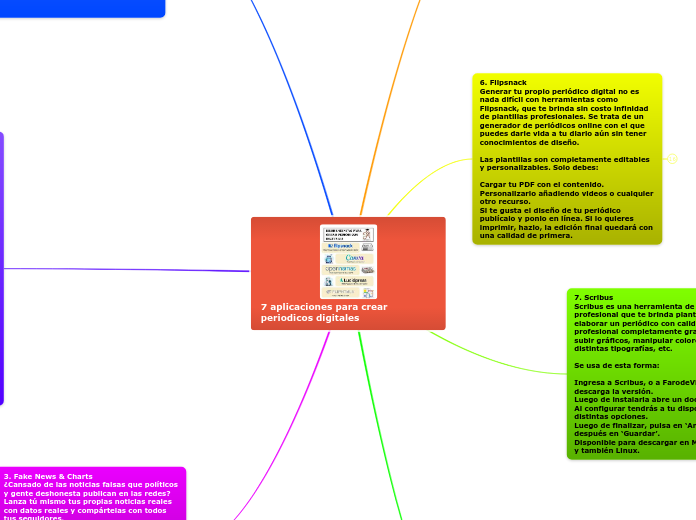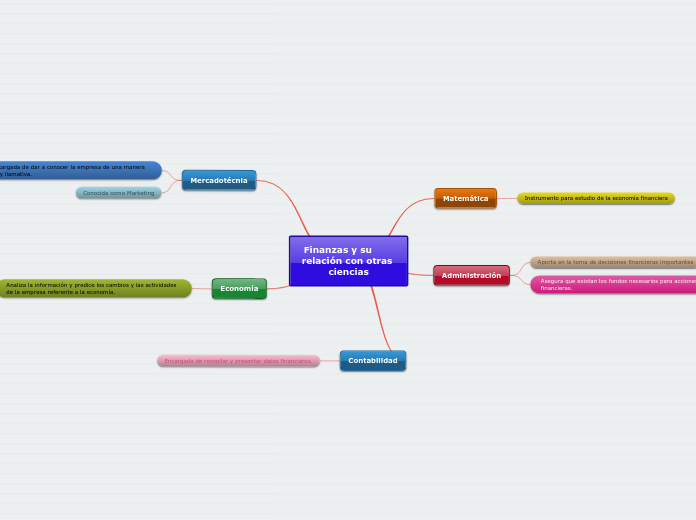WIX
Tenses demonstrate the time of actions centered around the subject of the sentence. These actions are called verbs and change according to tenses.
¿Cuanto cuesta crear un sitio web en wix?
En Wix puedes comenzar de manera gratuita. Solo debes elegir una plantilla para crear y diseñar tu sitio web y mantenerlo así por el tiempo que necesites. Sin embargo, si deseas personalizar aún más tu sitio ya que tu emprendimiento está creciendo, debes adquirir un plan Premium para poder obtener todas las funciones que no posee la versión gratuita.
Caracteristicas
There are four Future tenses:
- Future Simple ('with Will' and 'with Going to')
- Future Continuous
- Future Perfect Simple
- Future Perfect Continuous
Herramientas de optimización:
Análisis del sitio: podrás consultar las estadísticas del tráfico, tu posición en los buscadores, entre otras consultas.
Asistente SEO: realiza búsquedas relacionadas con tus palabras claves para que puedas segmentar a tu audiencia y conseguir mejores resultados.
Tienda online:
Crea y administra tu propia tienda online: comienza a vender tus productos y promoverlos con un sitio web en Wix.
Pagos sin comisiones: puedes elegir entre diversos métodos de pagos, como PayPal, pagos offline o tarjetas de crédito.
Redes y blogs:
Blogs profesionales: agrega fácilmente la pestaña de blog a tu sitio y comienza a compartir tu contenido.
Herramientas de Facebook: puedes integrar apps de Facebook para el monitoreo de tu audiencia.
Botones de redes sociales: agrega los botones de todas las redes sociales para que tu contenido pueda ser compartido en distintas plataformas.
Future Perfect Simple is used for:
- an action that will continue up until a point in the future
- an action that finishes just before another time or action in the future
Some adverbs used with Past Perfect Continuous for future actions:
- for
- since
- next week
- next month
- next year
Structure:
Will + Subject + Have Been + Verb-ING
e.g. How long will they be working on that project next week?
Type in your own examples or you can also choose from the examples below.
Form of word "to be":
Will I have been being?Will you have been being?Will he/she/it have been being?Will we have been being?Will you have been being?Will they have been being?
Form of word "to have":
Will I have been having?Will you have been having?Will he/she/it have been having?Will we have been having?Will you have been having?Will they have been having?
Structure:
Subject + Won’t Have Been + Verb-ING
e.g. They won’t have been working on that project for two years next week.
Type in your own examples or you can also choose from the examples below.
Form of word "to be":
I will not have been beingYou will not have been beingHe/She/It will not have been beingWe will not have been beingYou will not have been beingThey will not have been being
Form of word "to have":
I will not have been havingYou will not have been havingHe/She/It will not have been havingWe will not have been havingYou will not have been havingThey will not have been having
Structure:
Subject + Will Have Been + Verb-ING
e.g. They will have been working on that project for two years next week.
Type in your own examples or you can also choose from the examples below.
Form of verb 'to be':
I will have been beingYou will have been beingHe/She/It will have been beingWe will have been beingYou will have been beingThey will have been being
Form of verb 'to have':
I will have been havingYou will have been havingHe/She/It will have been havingWe will have been havingYou will have been havingThey will have been having
Gran banco de imágenes:
40 galerías: tendrás a tu disposición esta cantidad de galerías para que puedas elegir las imágenes que más combinen con todo el diseño de tu sitio.
Plantillas espectaculares: puedes elegir entre 500 plantillas disponibles que Wix tiene para ti y que están diseñadas para cualquier tipo de web.
Editor de imágenes: también tienes la posibilidad de editar todas las imágenes y mejorarlas gracias al editor integrado que te ofrece Wix.
Vídeos para el fondo: si prefieres ser un poco más arriesgado en cuento al contenido audiovisual que colocarás en tu web, puedes optar por los vídeos para el fondo.
Future Perfect Simple is used for:
- an action that will be finished by a particular time in the future
- an action that starts before and continues up to another action or time in the future
- an action that will finish before a certain time in the future, but it is not known exactly when
Adverb used with Future Continuous:
- tomorrow (e.g. tomorrow by 7)
Structure:
Will + Subject + Have + Past Participle?
e.g. Will you have met your colleague by this time tomorrow?
Type in your own examples or you can also choose from the examples below.
Form of word "to be":
Will I have been?Will you have been?Will he/she/it have been?Will we have been?Will you have been?Will they have been?
Form of word "to have":
Will I have had?Will you have had?Will he/she/it have had?Will we have had?Will you have had?Will they have had?
Structure:
Subject + Won’t Have + Past Participle
e.g. I won’t have met my friend form United States by this time tomorrow.
Type in your own examples or you can also choose from the examples below.
Form of word "to be":
I will not have beenYou will not have beenHe/She/It will not have beenWe will not have beenYou will not have beenThey will not have been
Form of word "to have":
I will not have hadYou will not have hadHe will not have hadWe will not have hadYou will not have hadThey will not have had
Structure:
Subject + Will Have + Past Participle
e.g. I will have met my friend form United States by this time tomorrow.
Type in your own examples or you can also choose from the examples below.
Form of verb 'to be':
I will have beenYou will have beenHe/She/It will have beenWe will have beenYou will have beenThey will have been
Form of verb 'to have':
I will have hadYou will have hadHe/She/It will have hadWe will have hadYou will have hadThey will have had
Funciones Básicas:
Editor sencillo e intuitivo: el editor que posee Wix te permitirá arrastrar y soltar para ir dándole la forma que deseas a tu web. Por lo tanto, no necesitarás conocimientos sobre codificación o programación.
Hosting gratuito: ofrece un hosting gratis y confiable por lo que asegurará que la web esté libre de amenazas o riesgos.
Compatibilidad con dispositivos móviles: te brinda la posibilidad de que con solo un clic puedas hacer tu sitio responsive y que se vea bien en todos los dispositivos.
App Market: integra apps y servicios online que harán crecer tu negocio.
Future Continuous is used:
- for an action that is likely to happen in the future and continue for an expected length of time
- for an action that will be in progress at some point in the future
- for action verbs (e.g. running)
- for predictions about future events
Adverb used with Future Continuous:
- tomorrow (e.g. tomorrow at 5 o'clock)
Structure:
Will + Subject + Be +Verb-ING?
e.g. Will you be having fun at the party?
Type in your own examples or you can also choose from the examples below.
Form of word "to be":
Will I be being?Will you be being?Will he/she/it be being?Will we be being?Will you be being?Will they be being?
Form of word "to have":
Will I be having?Will you be having?Will he/she/it be having?Will we be having?Will you be having?Will they be having?
Structure:
Subject + Won’t Be + Verb-ING
e.g. He won’t be having fun at the party.
Type in your own examples or you can also choose from the examples below.
Form of word "to be":
I will not be beingYou will not be beingHe/She/It will not be beingWe will not be beingYou will not be beingThey will not be being
Form of word "to have":
I will not be havingYou will not be havingHe/She/It will not be havingWe will not be havingYou will not be havingThey will not be having
Structure:
Subject + Will Be + Verb-ING
e.g. You will be having fun at the party.
Type in your own examples or you can also choose from the examples below.
Form of verb 'to be':
I will be beingYou will be beingHe/She/It will be beingWe will be beingYou will be beingThey will be being
Form of verb 'to have':
I will be havingYou will be havingHe/She/It will be havingWe will be havingYou will be havingThey will be having
Funciones principales: Wix tiene todo lo que necesitas para que puedas incursionar en el mundo de las páginas web sin muchas complicaciones, a continuación te mostramos cuáles son las funciones más destacadas que ofrece.
Future Simple is used:
- to predict an event in the future
- to invite
- to give orders
- to express willingness
- for actions that have not yet occurred but that will occur at a future date
"Going to"
'Going to' Future is used:
- to talk about our future intentions and plans
- for commands
Some adverbs used with 'Going to' Future:
- later
- tonight
- tomorrow
- next week
- next month
- next year
Structure:
BE + Subject + going to + Infinitive Form of Verb?
e.g. Are you going to read the whole book over the weekend?
Type in your own examples or you can also choose from the examples below.
Form of word "to be":
Am I going to be?Are you going to be?Is he/she/it going to be?Are we going to beAre you going to be?Are they going to be?
Form of word "to have":
Am I going to have?Are you going to have?Is he/she/it going to have?Are we going to haveAre you going to have?Are they going to have?
Structure:
Subject + BE not + going to + Infinitive Form of Verb
e.g. He isn't going to spend his vacation in Hawaii.
Type in your own examples or you can also choose from the examples below.
Form of word "to be":
I am not going to beYou are not going to beHe/She/It is not going to beWe are not going to beYou are not going to beThey are not going to be
Form of word "to have":
I am not going to haveYou are not going to haveHe/She/It is not going to haveWe are not going to haveYou are not going to haveThey are not going to have
Structure:
Subject + BE (am/is/are) + going to + Infinitive Form of Verb
e.g. She’s going to be a professional dancer when she grows up.
Type in your own examples or you can also choose from the examples below.
Form of verb 'to be':
I am going to beYou are going to beHe/She/It is going to beWe are going to beYou are going to beThey are going to be
Form of verb 'to have':
I am going to haveYou are going to haveHe/She/It is going to beWe are going to beYou are going to beThey are going to be
"Will"
Future Simple with 'will'' is used:
- to predict the future
- for something with absolute certainty
- when we're talking about a decision at the moment of speaking
- promises, requests, refusals, offers
- future facts
Some adverbs used with Future Simple:
- tomorrow
- next week
- next month
- next year
Structure:
Will + Subject + V1(First Form of Verb)?
e.g. Will you see Mary when she comes back from Denmark?
Type in your own examples or you can also choose from the examples below.
Form of word "to be":
Will I be?Will you be?Will he/she/it be?Will we be?Will you be?Will they be?
Form of word "to have":
Will I have?Will you have?Will he/she/it have?Will we have?Will you have?Will they have?
Structure:
Subject + Won’t (will not) + V1(First Form of Verb)
e.g. You won’t see Mary when she comes back from Denmark.
Type in your own examples or you can also choose from the examples below.
Form of word "to be":
I will not beYou will not beHe/She/It will not beWe will not beYou will not beThey will not be
Form of word "to have":
I will not haveYou will not haveHe/She/It will not haveWe will not haveYou will not haveThey will not have
Structure:
Subject + Will + V1(First Form of Verb)
e.g. I will see Mary when she comes back from Denmark.
Type in your own examples or you can also choose from the examples below.
Form of verb 'to be':
I will beYou will beHe/She/It will beWe will beYou will beThey will be
Form of verb 'to have':
I will haveYou will haveHe/She/it will haveWe will haveYou will haveThey will have
Herramientas que puedes integrar:
HubSpot: Esta herramienta es una suite de inbound marketing y ventas. Servirá para que puedas gestionar el marketing de tus redes sociales, así como el contenido de tu web, el SEO y el análisis de tu web, etc. Contar con el pixel integrado de Hubspot en tu web te permitirá medir la actividad que tienen quienes visiten tu web. De forma que tendrás información valiosa de ellos.
Facebook pixel: Es una herramienta de marketing muy valiosa. Cuando conectes el píxel de Facebook en tu página de web también podrás saber si alguien consultó la página de un producto, si lo añadió a su carrito de compra y si concretó la compra al final.
Google Analytics: Google analytics va a permitir que se pueda monitorear todo lo que esté relacionado al tráfico en la web. Con tan solo conectar esta herramienta con la página de Wix, se puede conocer a detalle el volumen total de las visitas que se tuvo, cuál era la procedencia geográfica de los visitantes, así como el número de las páginas que se vieron, la duración de la visita, etc.
¿Para que sirve?
There are four Past tenses:
- Past Simple
- Past Continuous
- Past Perfect Simple
- Past Perfect Continuous
Wix sirve para crear y diseñar sitios web sin necesidad de un experto en el área y con la calidad de un profesional. Esto es ideal para las personas que van comenzando con un negocio, pues pueden crear su sitio, tienda o blog sin costo alguno y con mucha facilidad.
Past simple expresses:
- an action that happened in the past and has no connection with the present
- an action that happened once in the past
- an action that happened regularly in the past
- an action that was true for some time in the past
- an event or action that already occurred
- an action that is finite - has both a starting and a stopping point
Some adverbs used with Past Simple:
- yesterday
- last month, last year
- ago (e.g. two days ago)
- in (e.g. in 1997)
- never, always, seldom, often, frequently, occasionally, once, twice
Interogative form
Structure:
Did + subject + Base Form of the Verb?
e.g. Where did you meet her?
Type in your own examples or you can also choose from the examples below.
Form of word "to be":
Was I?Were you?Was he/she/it?Were we?Were you?Were they?
Form of word "to have":
Did I have?Did you have?Did he/she/it have?Did we have?Did you have?Did they have?
Structure:
Subject + did not/didn’t + Base Form of the Verb
e.g. They didn’t like my food.
Type in your own examples or you can also choose from the examples below.
Form of word "to be":
I was notYou were notHe/She/It was notWe were notYou were notThey were not
Form of word "to have":
I did not haveYou did not haveHe/She/It did not haveWe did not haveYou did not haveThey did not have
Structure:
Subject + Verb in Past Simple (2nd form)
e.g. They lived in Spain three years ago.
Type in your own examples or you can also choose from the examples below.
Form of verb 'to be':
I wasYou wereHe/She/It wasWe wereYou wereThey were
Form of verb 'to have':
I hadYou hadHe/She/It hadWe hadYou hadThey had
¿Que es wix?
There are four Present tenses:
- Present Simple
- Present Continuous
- Present Perfect
- Present Perfect Continuous
WIx es una plataforma de desarrollo web que basa su sistema en la nube, en la cual puedes hacer tu sitio web sin tener conocimientos profundos en programación. Te ofrece cientos de plantillas y funciones con las cuáles podrás jugar para crear tu sitio web, blog o tienda online.
Present Simple is used for:
- habits
- general truths
- repeated actions of events
- fixed arrangements/timetables
- feelings/opinions/beliefs
- instructions.
Some adverbs used with Present Simple:
- always
- usually
- seldom
- never
- sometimes
- often
- frequently, generally
- habitually, occasionally
- once, twice
Interrogative form
Structure:
Do + Subject (I, You, We, They)+ V1 (First Form of Verb)?
Does + Subject (He, She, It)+V1 (First Form of Verb)?
e.g. Where does he work?
Type in your own examples or choose from the examples below.
Form of word "to be":
Am I?Are youIs he/she/it?Are we?Are you?Are they?
Form of word "to have":
Have I?Have youHas he/she/it?Have we?Have youHave they?
Negative form
Structure:
Subject (I, You, We, They) + do not / don’t + V1 (First Form of Verb)
Subject (He, She, It) + does not / doesn’t + V1 (First Form of Verb)
e.g. He doesn’t work in a bank.
Type in your own example or choose from the examples below.
Form of word "to be":
I am notYou are notHe/She/It is notYou are notWe are notThey are not
Form of word "to have":
I do not haveYou do not haveHe/She/It does not haveWe do not haveYou do not haveThey do not have
Affirmative form
Structure:
Subject (I, You, We, They) + V1(First Form of Verb)
e.g. I usually go jogging at weekends.
Subject (He, She, It)+ V1(First Form of Verb) + s/es
e.g. She writes every day.
Examples
Type in your own examples or you can also choose from the examples below.
Form of verb "to be":
I amYou areHe/she/it isWe areYou areThey are
Form of verb "to have":
I haveYou haveHe/she/it hasWe haveYou haveThey have
¿Que necesito para empezar a crear mi sitio web en wix?
Solo debes comenzar y listo. Regístrate y empieza a diseñar tú mismo el estilo de tu sitio web. Recuerda que tienes muchas funciones para que puedas integrarlas a tu sitio y personalizarlo como más desees.









